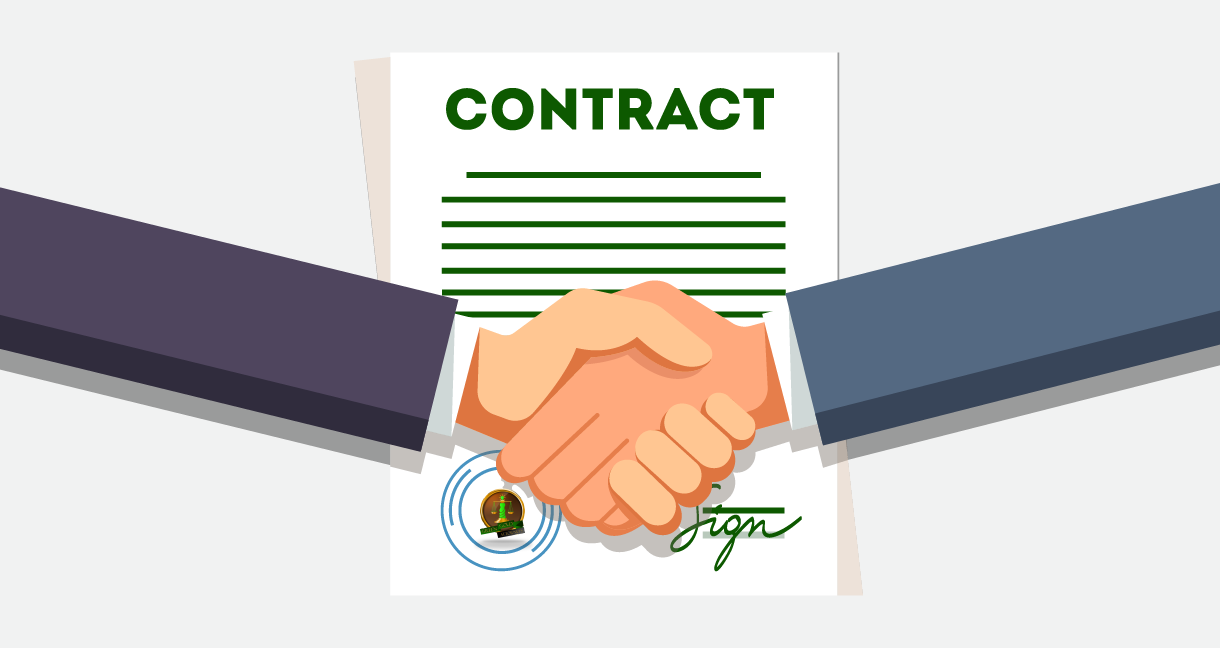
5 powerful tips you need to know to make your business contract valid legally
what is a contract in business law?
A business contract creates “legal obligations” between two or more “parties” (individuals, businesses, institutions, groups, etc.) involved in the contract.
Contracts are agreements to exchange something of value (usually goods or services) that are enforceable in court. In other words, an agreement is an understanding between persons to do or not to do certain things in a given way, time, place, or manner.
In an agreement there must be a desired result, certain terms and conditions to guide parties to an agreement towards achieving their goals. The human mind is forgetful, deceitful, and dynamic. Hence, the need for agreements cannot be over-emphasized.
Greengold Attorneys, a law firm located in Abuja always advises her clients to include the appropriate information in a contract to protect all parties and ensure fairness.
A contract is “legal” when it contains the essential elements of a contract which makes it enforceable in court and accords it a legal beam. For example, an agreement made by two persons for the supply of human parts or stolen items cannot be said to be a Legal Contract. It is surely, not a legal contract because the subject matters (human parts or stolen items) are illegal.
Hence, such a contract can never be enforceable (recognisable) in law.
Here are 5 tips for having a Legally Binding Contract
-
Understanding the Basic Requirements of all Contracts
Contracts have three essential elements – “an offer“, “an acceptance“, and sufficient “consideration”. The contract should be written in such a way that the parties involved understand the contract without an attorney interpreting it. Because an agreement between two parties can be a little fuzzy.
So this will help all parties to be clear about their obligations. A clear contract also protects everyone involved in case the contract is breached or unfulfilled
The law is clear on this – a legal contract exists only when one party makes an offer and the other accepts all terms of that offer. Every top firm or corporate law firm ensures that the contract is clear to both parties before appending any signature.
In other words, all parties involved must reach an agreement on the terms and conditions of the contract before it can be valid.
-
Identify Each Party Correctly
You should only form a contract with someone who has the authority to carry out the contract (like a company’s owner or CEO) and ensure the name provided is his/her legal name.
You’d be surprised how often people get this wrong and how important it is. You need to include the correct legal names of the parties to the contract so it’s clear who is responsible for performing the obligations under the agreement (and who you have legal rights against if things go wrong).
Furthermore, a contract will not be legally valid unless everyone involved is an adult with the legal ability, or “capacity,” to enter into a contract. Capacity is usually determined by a person’s age and mental competence.
-
The Importance of Exchanging Something of Value
In a legal contract, something of value has to be exchanged for something else of value. This benefit is called the “consideration.” It can be services, cash, goods, intellectual property, or the promise to exchange one of these items. The terms of the contract must be clear to be enforceable.
For a contract to be legal, an offer must be made and accepted. This means that all parties involved or that would be involved should have the same general idea about what the contract will stipulate. and must mutually assent to the terms of the contract.
This means that they agree to the contract without being forced or coerced to do so. All parties should be treated fairly and honestly.
-
Spell Out all of the Details
it’s of utmost importance that the details of the contract are spelt out in a readable language that is easy to understand, describe what services or goods are being exchanged.
In some cases, money may be exchanged for these goods or services. In other cases, a bartering of services or goods may be exchanged.
Don’t leave anything out, if you discuss something verbally and shake on it but it’s not in the contract, it will be next to impossible to enforce. In the world of contract law, judges (with a few exceptions) may only interpret a contract from a written statement not the verbal statement of the parties. If you forget to include something, you can always create a short written amendment called addenda.
You can add an addendum to your contract if you forgot to detail something in the contract or if the details of some part of the contract would be cumbersome to include in the contract itself. Addenda can be added at the time of the contract or afterwards as long as all parties to the contract agree and sign.
-
Signature and Execution
Specify how long the contract will last. If it’s a one-time contract, state that it will be terminated upon completion of the transaction. If it’s a contract for ongoing services, you may want to state that either party may end the contract by giving notice before termination of the contract.
It makes sense to set out the circumstances under which the parties can terminate the contract. For instance, if one party misses too many important deadlines, the other party should have the right to terminate the contract without being on the hook legally for breaching (violating) the agreement.
Also, the parties should research which state and federal laws might pertain to the contract so you can ensure that it is legally enforceable especially if both parties are from a different region where the law might be different. The parties may want to specify which law will mediate, arbitrate, or bring legal actions under the contract. This will simplify issues in case of a dispute.
In conclusion, is important to keep the contract simple, short in a clear sentence with numbered paragraph headings. Provide spaces for each name and spaces for the date the contract is signed.
When both parties involved in the contract are in agreement, the contract can be signed and dated.
Greengold Attorneys are the Leading Law Firms in Abuja that offer Legal services on Investments, Corporate Law, Property Law, Tax Law, Alternative Dispute Resolution and Litigation, Business Law/Commercial among others.

